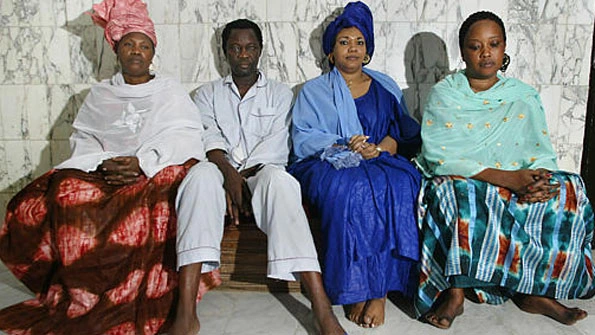Veteran Nollywood actor Stephen Alajemba, popularly known for his roles as Uwaezuoke, has made headlines with his unconventional views on marriage. In a recent interview with Ugwumba TV, the actor expressed his belief that it is both a sin and a danger for a man to marry only one or two wives, sparking conversations about cultural and personal perspectives on polygamy.
Alajemba, renowned for his charismatic performances in Nollywood films, drew a sharp line between societal norms and his own interpretation of marriage dynamics. He argued that having a single wife exposes a man to various risks, including threats to his safety. In his words, “If you marry one wife, your life is at risk. The safety of the director is in the hands of the security.”
The actor went further, claiming that having two wives does not alleviate the problem. Instead, he suggested, it introduces a new layer of danger. “If you marry two wives, they will conspire to poison you,” he remarked, emphasizing the potential for conflict and rivalry between co-wives.
However, Alajemba proposed what he sees as the ideal solution: marrying three or more wives. According to him, this approach minimizes the risks and eliminates the so-called sin associated with monogamy or dual partnerships. “If you marry three or more wives, they will all be on their own, and you will only be providing for them. You will be taking turns with their meals and bedrooms,” he added, painting a picture of a structured and, in his view, harmonious polygamous household.
The actor’s comments have reignited debates around polygamy, a practice that is both deeply rooted in some African cultures and widely criticized in others. While polygamy is legally and socially accepted in certain regions, it continues to be a contentious topic, with opinions divided along lines of tradition, religion, and modern values.
Alajemba’s statements highlight how deeply personal and cultural beliefs influence perspectives on marriage. For some, his views may resonate as a reflection of traditional values, while others may see them as outdated or controversial. Regardless, the conversation underscores the diversity of thought surrounding marriage and relationships, reminding us of the evolving dynamics in an ever-changing society.
As fans and critics weigh in on his remarks, Alajemba’s take on marriage serves as a provocative addition to Nollywood’s long history of engaging with societal issues through its stars and stories.










